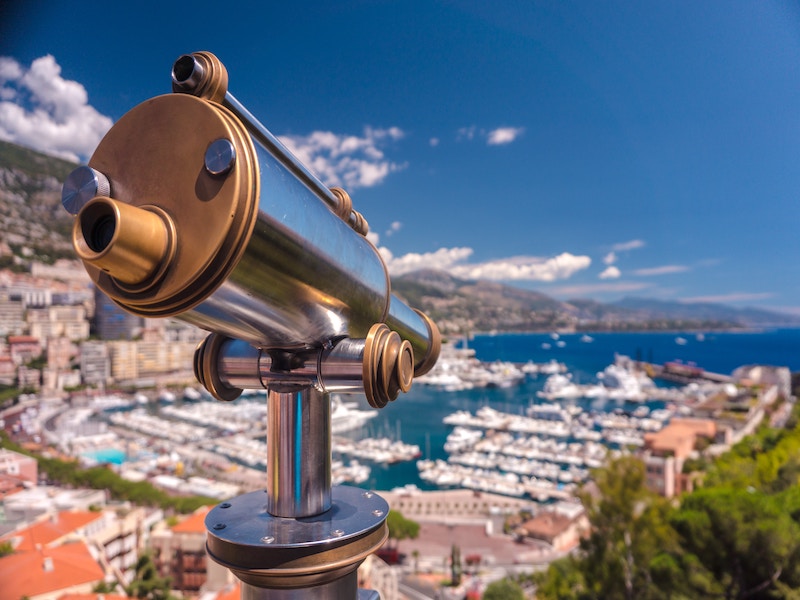The health of the economy depends on it
Looking through a microscope at yachts on a shoreline is the closest many will get to living the lives of the rich and famous. We can all grasp onto that dream, though, because in modern society, everyone is chasing a variation of the American Dream. That dream centres on the idea that individuals can go from having nothing to having everything. Having everything centres on being rich. The dream, or chasing it, is interwoven in Hollywood movies, TV programmes, songs and advertising. With globalisation has come the spread of Americanisation, hence why chasing the dream is a global aspiration. The thing about the dream is that it encourages greed, excess and a never-ending desire for more. The problem with the pursuit of the dream is that everything we buy and use has a carbon footprint. The more we consume, the more emissions we emit, which explains why the top 1% of emitters produce over 1000 times more CO2 than the bottom 1%. If greed and excess are driving the climate disaster, why do they continue to go unquestioned?
From an economic perspective, those living or chasing the dream are ideal citizens exhibiting desirable economic behaviour because they are never satisfied with enough. If the majority rejected the rat race and recognised, as Muhammed said, that “riches are not from abundance of worldly goods, but from a contented mind,” the economy would soon ground to a halt. This is because if people don’t feel compelled to continually buy more, companies can’t continually sell more, which means they can’t make more, which means output can’t increase. When output increases, it leads to economic growth, which is fundamental to the health of the economy, and with it, society. Consumption then acts as the fuel that keeps it all going.
The fact consumption feeds the climate crisis is neither here nor there when people are continually bombarded by social cues encouraging them to lead a materialistic lifestyle. In a world of rampant individualism, there is a total disconnect between my action on an individual level and the catastrophic reaction of billions of self-serving decisions. The only concern everyone has is their own happiness, and pursuing the dream, of course. And the thing is, people can’t be blamed for aspiring to live lives of excess. We remain entrenched within an economic system that argues increasing incomes will translate into increased well-being for all. This belief is interwoven in every element of our lives. Everywhere we look, there is an attempt to convince us that having the most is the path to happiness.
The inconvenient truth is a culture of consumption, and the greed and excess it breeds, are incompatible with a sustainable society where human needs are met within environmental limits. We either recognise the need to radically transform what social success looks like, or we continue to hurtle towards a world where we’re bombarded by wave upon wave of weather extremes that leave governments overwhelmed and incapacitated. Either way, we’re living through a cultural anomaly, a time totally divorced from the rest of the human experience. The celebration of consumption can’t be sustained. It seems things are going to have to get really, really bad for that fact to be recognised.



